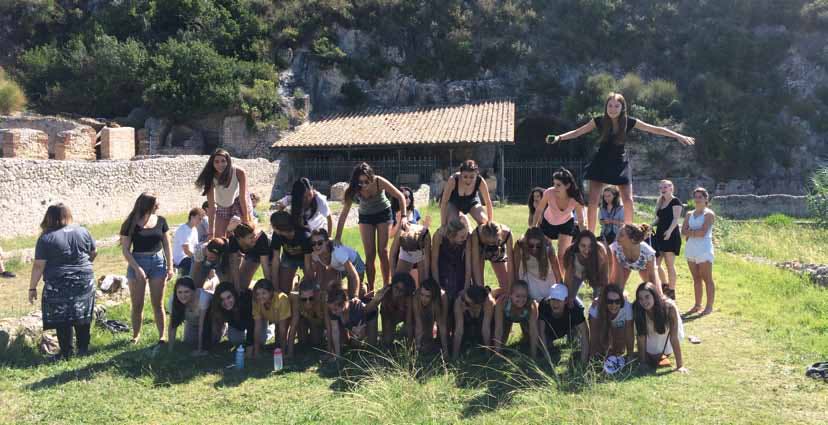
The Best Study Tips for I.B. Students
During this programme, students vigorously revise three higher level and three standard level subjects along with Theory of Knowledge, CAS and their Extended Essay. During these two years, the pressure begins to mount up and can lead to feeling overwhelmed. In this article, we will discuss the best study tips for I.B. students not only in terms of revision but also how to maximize notetaking efficiency during classes.
Organization is Key
I remember when I first started my junior year after a long summer holiday. We attended various meetings during our first week which outlined what was expected of us that year, not only academically but also with CAS and our E.E. By the end of the first week I already had three very important assignments. I hadn't even brought all the notebooks I needed for my standard level classes. In short, my lack of organization led me to have a rough start to the year.
One of the most important tips any I.B. Alumni can give you is that organization is key. Don't only use an agenda where you write all your work, use reminders on your phone, and a calendar on which you can write your assignment deadlines. Write down the work you have to do and also when it's due. That way, you know how much time you have to do it, and you can distribute your time accordingly for multiple deadlines. More importantly, outline which tasks are the most important or urgent. I also strongly suggest that you break larger assignments such as internal assessments into smaller chunks by giving yourself “mini-deadlines”.
There is No “I” in Team
During the year, there will be times when you will be confused, miss classes, or simply too busy catching-up other work to take notes in class. When that happened to me, I knew that I was not the only one sailing that boat. One of the most helpful tips that I can give you is to create study groups with your classmates to revise together important material after class. More often than not, your classmates will explain a theory or concept to you from another perspective, and you can teach one to them. Therefore, helping each other out and being resourceful, especially during exam season is incredibly important.
Most Effective Notetaking
Picture this: it's 8:25, and you're running late for class. You stop by the school or local bar and grab a coffee, whist piping hot you snatch it and rush to class with an open backpack and messy hair. You reach your seat in the nick of time, only to find that the lesson has already begun. You find a pen, grab your scrappy notebook and start frantically jotting down everything the teacher says. Once the lesson has ended, you’re essentially left with a full word-for-word transcript of the lesson. As common as this situation is, it is not wise to write down every sentence the teacher says.
First of all (especially recommended for your higher levels), organize your notes not by lessons but by concepts. I.e. don’t write lesson 1, 2, 3, etc. Write down the concepts until you are finished with them, as this will be easier to revise for exams since your notes are more structured. Use coloured pencils or pens to outline recurring themes, as it’s easier to make connections to other concepts and theories later once you have all the learning material. If you are a visual learner like me, use as many pictures, graphs or sketches as possible. Those are always handy to come back to if you are struggling to remember something. One tip I found particularly handy in my senior year, was to create mind maps to make as many associations within the subject as possible. Remember that your textbooks are not the only source of information you can read from. There are countless sources on the internet consisting of books, journals, articles, videos, podcasts etc. which you can extract important information from. Just remember to scrutinize the source and reference it properly.
Taking Care of Yourself
As academically demanding as the I.B. is, it is also equally as important to take regular breaks from revision. Stress build-up can lead to serious health problems and negatively impact your student and private life. I recommend taking regular 30-minute breaks every 1:30 – 2 hours of revision during exam season. Take longer breaks when it’s time to have lunch and dinner. I cannot stress the importance of sleep enough. It is always better to head to an exam with plenty of sleep and food in your system than sacrificing sleep to revise a few more hours because you need to rest in order to assimilate everything you revised. You risk more by being sleep deprived and hungry than to remember one or two concepts less. Oh, and believe me no amount of caffeine in the morning will help you remember.
Conclusion
Regardless of your chosen subjects, it is no lie that the I.B. will be a challenging endeavour for you. As discussed in this article, there are things you can do right now that will help you improve not only your organization skills but also manage your stress. This will have a very positive impact on your experience during the I.B. diploma, and hopefully, help you improve your grades!
David Rosales is an alumnus of St. Stephen's School, Rome, Italy. He graduated in 2019 with a BSc Hons in Biotechnology from the University of Manchester.











